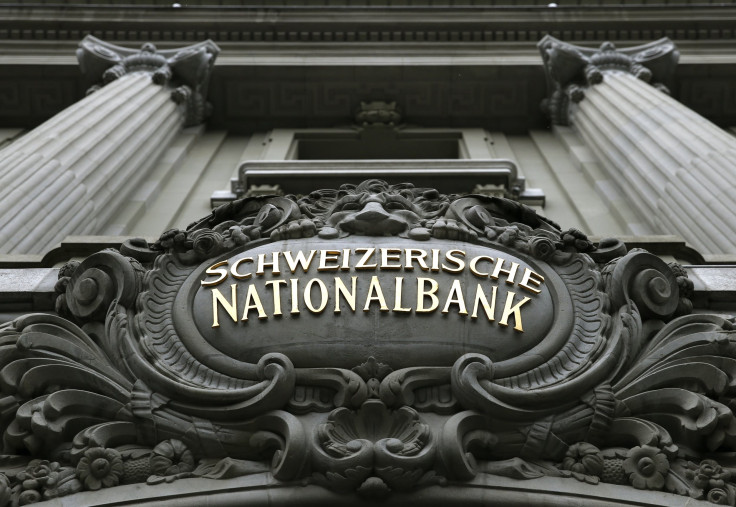Russian Ruble Crisis: Why Switzerland Will Begin Charging For Commercial Bank Deposits

Russia’s currency crisis has sent global capital flowing into safe havens like U.S. Treasuries and German Bunds. In a surprise move on Thursday, Swiss National Bank attempted to slow the flow of Russian capital into the country by announcing--for the first time since the 1970s--that it would begin charging commercial banks to park money in its vaults. The move helped to reel back the strength of the Swiss franc.
“Over the past few days, a number of factors have prompted increased demand for safe investments,” the SNB said Thursday. “The introduction of negative interest rates makes it less attractive to hold Swiss franc investments.”
Starting Jan. 22, SNB will impose a 0.25 percent fee on sight deposit accounts of foreign commercial banks. Also known as overnight funds, these accounts are used by banks to quickly move cash around when they lend and borrow from each other in the overnight market.
The Swiss franc has been strengthening against the euro amid speculation the European Central Bank (ECB) would begin a securities-buying program, also known as quantitative easing, aimed at lowering interest rates and increasing the money supply, and public debt. Between speculation of falling interest rates in the euro zone and Russia’s currency collapse, Switzerland’s currency has come close to a exchange rate ceiling of 1.20 francs per euro announced by the SNB in a surprise move in 2011.
The exchange rate cap was put in place to curb deflation and keep Switzerland out the recession that was plaguing the euro zone at the time. In January economists predicted that Switzerland would lift the cap on its currency next year, but Thursday’s move indicates the country is implementing more measures to keep the value of the franc down.
The Swiss franc weakened after SNB’s announcement, trading at 1.2041 per euro in Zurich on Thursday afternoon, a hair over the franc-euro cap.
© Copyright IBTimes 2025. All rights reserved.





















